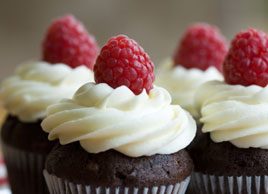Why it’s hard to say "no" to comfort food
The psychology behind why we’re tempted by comfort food

Source: The End of Overeating; McClelland & Stewart
Cues, priming, and emotional triggers all drive conditioned hypereating in fundamentally the same way’by stimulating mental ghosts. These ghosts are representations of past sensory and emotional associations with food that we have stored in our brains. Expectations, or what Mark Goldman, associate director of the U.S. National Institute on Alcohol Abuse and Alcoholism, calls ‘traces retrieved from memory,’ give form to these ghosts.
When we expect food to give us pleasure (positive reinforcement) or relief from distress (negative reinforcement), that expectation amplifies the reward value. Expecting something to be rewarding stimulates pursuit of that reward.
‘Expectancy has powerful effects on strengthening the primary reinforcer,’ said George Koob, chair of the Committee on the Neurobiology of Addictive Disorders at The Scripps Research Institute in California . ‘With the script of how we behave in the presence of a stimulus already written and stored in our brains, expectancy also helps to control the choice we make between actions.’
The belief that food will make us feel better contributes to our desire for food. At that point it’s only a short step from wanting the food to feeling that we need it. The act of eating becomes something we do to attain a desired emotional effect.
‘If most often eating alleviates my negative mood state, then over time, that cognitive memory will become the salient, predominant one,’ said Gregory Smith, of the psychology department at the University of Kentucky. Having come to associate the behavior of eating with a desired outcome, we begin to act more automatically to achieve that outcome.
For example, I believe a Milky Way candy bar will make me feel better because it has done so before. That expectation drives my action. I’m caught in a cycle of craving, satisfaction, and more craving. Conditioned hypereating takes on a momentum of its own.
The dominating influence of rewarding food can be marked along a continuum. Many people like and want a food, but only some of us develop elaborate thoughts about it, or a preoccupation with it. We still need to dig further to understand why some people are so much more vulnerable than others, but for those unlucky ones, an increasingly intense focus on reward can spiral into obsession.
‘Thinking about cream cakes is fine, as long as it doesn’t become dysfunctional for you,’ said David Kavanagh, a professor of clinical psychology at the University of Queensland in Brisbane, Australia. ‘What makes it an obsession is the fact that you don’t want the thought.’
Someone who can’t stop thinking about a cream cake when she would like nothing better than to shut it out of her mind comes to wonder, ‘What does it mean if I have this thought? This must mean I’m a very weak person. I’m somebody who cannot succeed at a diet.’
The brain is conflicted. That generates unhappiness, followed, ironically, by the notion that only the cream cake can bring relief. We begin thinking, ‘I feel so awful now, but if I actually had that cream cake, I’d feel better.’
The clash escalates as we try to put the cream cake out of our minds. That’s known as the white bear problem’if you tell yourself not to think about white bears, soon that’s your dominant thought. The research literature tells us we can suppress thoughts only for short periods of time. As soon as we tell ourselves, ‘I’d better make sure to avoid that thought,’ we start to focus on it. ‘An attempt at suppression is going to mean that the thought becomes more salient,’ said Kavanagh.
Indeed, focusing single-mindedly on not eating eventually pushes us to eat more. Feeling deprived only increases the reward value of food, and then usually gives way to indulgence, and often to abandon. As desire evolves into need, we do exactly what we’ve tried so hard not to do’we eat that cream cake. And then we feel worse, which makes us even more likely to be out of control.
To find your way out of this trap, you need to understand the functions of the brain, the drivers of conditioned hypereating, and what you can eat without triggering the reward-based behavior that leads to habit.
Excerpted from The End of Overeating by Dr. David Kessler Copyright © 2009 by Dr. David Kessler. Excerpted by permission of McClelland & Stewart. All rights reserved. No part of this excerpt may be reproduced or reprinted without permission in writing from the publisher.
Don’t miss out! Sign up for our free weekly newsletters and get nutritious recipes, healthy weight-loss tips, easy ways to stay in shape and all the health news you need, delivered straight to your inbox.




